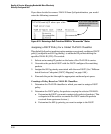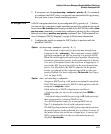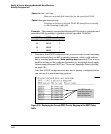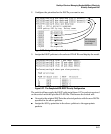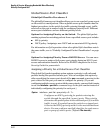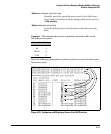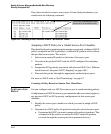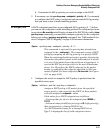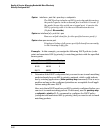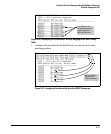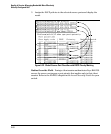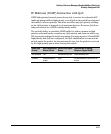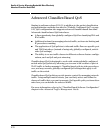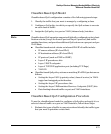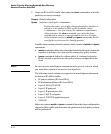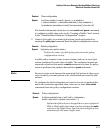
Quality of Service: Managing Bandwidth More Effectively
Globally-Configured QoS
Syntax: interface < port-list > qos dscp < codepoint >
The DSCP policy includes an 802.1p priority and determines
the packet’s queue in the outbound port to which it is sent. If
the packet leaves the switch on a tagged port, it carries the
802.1p priority with it to the next downstream device.
(Default: No-override)
Syntax: no interface [e] < port-list > qos
Removes a QoS classifier for the specified source-port(s).
Syntax: show qos source-port
Displays a listing of all source-port QoS classifiers currently
in the running-config file.
Example. In this example, you assign the following DSCP policies (code-
point and associated 802.1p priority) to matching packets with the specified
source-ports:
Source-Port DSCP Priority
A2 000111 7
B1-B3 000101 5
B4, C2 000010 1
1. Determine if the DSCP codepoints that you want to use to mark matching
packets already have an 802.1p priority assigned, which could indicate
use by existing applications (show qos dscp-map command). This is not a
problem as long as the configured priorities are acceptable for all appli-
cations using the same DSCP.
Also, note that a DSCP must have an 802.1p priority configured before you
can use it to mark matching packets. If necessary, use the qos dscp-map
< codepoint > priority < 0 - 7 > command to configure the DSCP policy
(codepoint and associated 802.1p priority) that you want to use to mark
matching packets.
6-66



